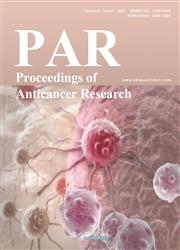Are M1 and M2 macrophages Effectual Players in Pathological Conditions?
引用次数: 0
Abstract
Pathologic inflammatory conditions are frequently correlated with dynamic alterations through macrophage activation, with classically activated M1 cells associated with promoting and sustaining inflammation and M2 cells implicated in resolving or smoldering chronic inflammation. Inflammation is a common feature of various chronic diseases, and it has direct involvement in the emergence and progression of these conditions. Macrophages participate in an autoregulatory loop characterizing inflammatory process, as they produce a wide range of biologically active mediators that exert either deleterious or beneficial effects during inflammation. Therefore, balancing the ratio of M1/M2 macrophages can help to ameliorate the inflammatory landscape of pathological conditions. This review will explore the role of macrophage polarization in distant pathological inflammatory conditions, such as cancer, autoimmunity, renal inflammation, stroke, and atherosclerosis, while sharing macrophage-driven pathogenesis.M1和M2巨噬细胞在病理状态下起作用吗?
病理性炎症条件通常与巨噬细胞激活的动态改变相关,经典激活的M1细胞与促进和维持炎症有关,M2细胞与缓解或抑制慢性炎症有关。炎症是各种慢性疾病的共同特征,它直接参与这些疾病的发生和进展。巨噬细胞参与表征炎症过程的自调节回路,因为它们产生广泛的生物活性介质,在炎症过程中发挥有害或有益的作用。因此,平衡M1/M2巨噬细胞的比例有助于改善病理状态下的炎症景观。本文将探讨巨噬细胞极化在远处病理性炎症中的作用,如癌症、自身免疫、肾脏炎症、中风和动脉粥样硬化,同时分享巨噬细胞驱动的发病机制。
本文章由计算机程序翻译,如有差异,请以英文原文为准。
求助全文
约1分钟内获得全文
求助全文

 求助内容:
求助内容: 应助结果提醒方式:
应助结果提醒方式:


